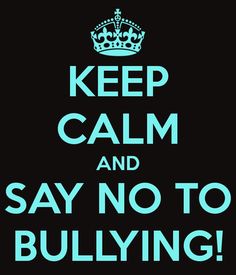
WARNING SIGNS:
It is important to talk with children who show signs of being bullied or bullying others.
These warning signs can also point to other issues or problems, such as depression or
substance abuse. Talking to the child can help identify the root of the problem. Be aware
that not all children who are bullied exhibit warning signs.
SIGNS A CHILD IS BEING BULLIED:
- Unexplainable injuries.
- Lost or destroyed clothing, books, electronics, or jewelry.
- Frequent headaches or stomach aches, feeling sick or faking illness.
- Changes in eating habits, like suddenly skipping meals or binge eating. Kids
may come home from school hungry because they did not eat lunch. - Difficulty sleeping or frequent nightmares.
- Declining grades, loss of interest in school work, or not wanting to go to school.
- Sudden loss of friends or avoidance of social situations.
- Self-destructive behaviors such as running away from home, harming themselves, or
talking about suicide. - IF YOU KNOW SOMEONE IN SERIOUS DISTRESS OR DANGER, DON'T IGNORE THE PROBLEM.
SIGNS A CHILD IS BULLYING OTHERS:
- Gets into physical or verbal fights.
- Have friends who bully others.
- Are increasingly aggressive.
- Get sent to the principal's office or to detention frequently.
- Have unexplained extra money or new belongings.
- Blame others for their problems.
- Don't accept responsibility for their actions.
- Are competitive and worry about their reputation or popularity.
WHY DON'T KIDS ASK FOR HELP:
- 2012 school of crime and safety shows that adults were notified in less than half (40%)
of bullying incidents. - Bullying make children feel helpless. Kids may want to handle it on their own to feel in control again.
- Children may fear being seen as weak or a tattletale.
- Kids may fear backlash from the kid who bullied them.
- Bullying is an humiliating experience. Kids may not want adults to know what is being said about them. Even if false
- Kids may also fear that adults will judge them or punish them for being weak.
- Kids who are bullied already feel socially isolated. They may fell like no one cares or could understand.
- Kids may fear being rejected by their peers.
EFFECTS OF BULLYING:
Bullying can affect everyone - those who are bullied, those who bully, and those who witness bullying.
Bullying is linked to many negative outcomes including impacts on mental health, substance use, and suicide.
It is important to talk to kids to determine whether bullying - or something else - is a concern.
KIDS WHO ARE BULLIED:
Kids who are bullied can experience negative physical, school, and mental health issues. Kids who are bullied
are more likely to experience:
Education - Bullying can negatively impact a child's access to education and lead to:
- School avoidance and higher rates of absenteeism.
- Decrease in grades.
- Inability to concentrate.
- Loss of interest in academic achievement.
- Increase in dropout rates.
Health - Bullying can also lead to physical and mental health problems, including:
- Heachaches and stomacheaches.
- Sleeping problems.
- Low self-esteem.
- Increased fear or anxiety.
- Depression
- Post traumatic stress.
- Self - isolation
- Increased aggression.
- Self-harm and suicidal ideation.
- Fear of other students.
- Retaliation.
school shooting cases in the 1990's, the shooters had a history of being bullied.
KIDS WHO BULLY OTHERS:
Kids who bully others can also engage in violent and other risky behaviors into adulthood. Kids who bully
are more likely to:
- Abuse alcohol and other drugs in adolescence and as adults.
- Get into fights, vandalize property, and drop out of school.
- Engage in early sexual activity.
- Have criminal convictions and traffic citations as adults.
- Be abusive toward their romantic partners, spouses, or children as adults.
BYSTANDERS:
Kids who witness bullying are more likely to:
- Have increased use of tobacco, alcohol, or other drugs.
- Have increased mental health problems, including depression and anxiety.
- Miss or skip school.